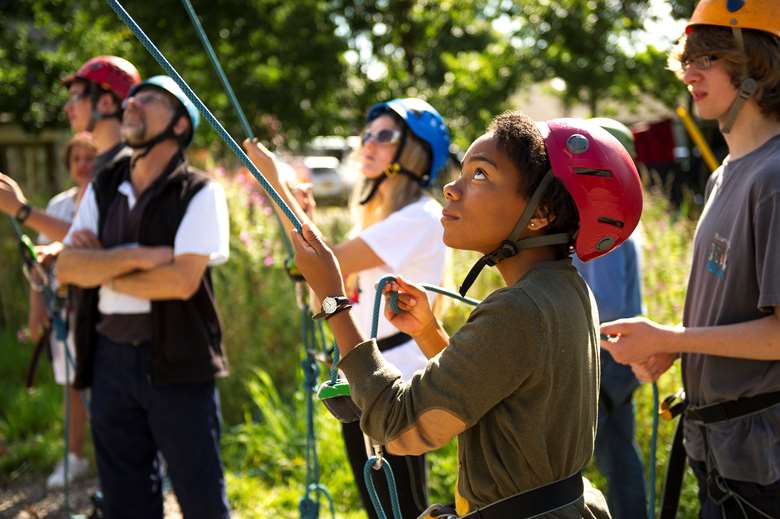NCS programmes may lose money, research suggests
Gabriella Jozwiak
Thursday, March 9, 2017
The government's flagship National Citizen Service (NCS) initiative may have lost money on both its spring and summer programmes, independent research has found.

An evaluation of the scheme for 15- to 17-year-olds, which is backed with £1.2bn of government cash up to 2020, found that the financial return for every £1 spent for the spring 2015 programme was between £0.70 and £1.24, while for the summer project it was between £0.78 and £1.59.
The only part of the initiative estimated to guarantee a social return was the autumn programme, which delivered a return of between £1.18 and £2.38 of benefits for every £1 spent.
The potential social benefits the scheme is believed to deliver include improved education and career outcomes, increased happiness, better mixing with people of different backgrounds, and increased participation in volunteering.
The figures represent a decline on social return estimates for 2014, when every £1 invested in the spring programme was estimated to return between £0.75 and £3.11, the summer programme between £1.12 and £3.98, and the autumn programme between £0.96 and £1.71.
However, the report, produced for the NCS by Ipsos Mori, notes that direct comparison cannot be made because different methodology was used to assess impact in 2015 compared with previous years, as well as other differences such as variation in recruitment of methods of participants and the characteristics of young people completing the schemes.
The report said: "The findings do not suggest that there has been any material change in the overall cost-effectiveness of NCS over time.
"In light of these uncertainties, comparisons of the relative cost-effectiveness of the different programmes are not advised."
Overall the report found NCS had a positive impact on participants. Of those surveyed following the summer programme, 93 per cent said they found their overall experience of NCS worthwhile.
Following the spring programme, 91 per cent said they got the chance to develop skills that would be of use in the future.
The report also showed the programme had delivered a total of seven million hours of community volunteering.
However, some feedback was lower within some programmes than in previous years. The summer 2015 programmes returned less positive impacts on happiness than in summer 2013, although there was an improvement on this measure for the autumn programme.
For 2015 the NCS programme had less of an impact on attitudes to mixing with people from different backgrounds than was the case in 2014. There was also lesser impact for participants reporting an expansion of social networks compared with 2014.
In 2015, 75,595 young people took part in NCS during the spring, summer and autumn programmes. This accounts for only 63 per cent of the target 120,000 places the government had planned for young people.
In spring, 4,671 young people attended (with 4,107 completing), 59,471 in summer (with 54,685 completing), and 11,453 in autumn 2015 (with 9,647 completing).
In February it emerged during a public accounts select committee meeting that participation targets for 360,000 young people to take part in NCS by 2020/21 had been scaled back to 247,000.
Michael Lynas, chief executive of NCS Trust, said NCS released three complementary reports alongside the evaluation, each looking at different aspects of the value for money of the programme. He said all the reports should be looked at in their totality to get an accurate picture.
"All the reports show a positive return of investment for the programme in their central estimates," he said.
"Ipsos Mori looked at the 2015 programmes and the 2013 summer programme two years on, and are clear that they only value the volunteering and leadership aspects of the programme, and do not therefore include impacts including wellbeing, higher education, fundraising and impacts on staff and volunteers.
"The report from social impact economists Jump and Simetrica used the 2015 Ipsos Mori data to value the wellbeing impact and found benefits of between £2.20 and £4.15 for every £1 invested in the 2015 programme.
"New data from NCS delivery partners estimates that each NCS participant raises up to £45 for good causes on the programme. Applying this rate across the NCS graduate community, this could mean an impressive £13.5m raised by teenagers for charities on the NCS programme.
"We are working with UCAS to value the higher education impact of the programme, and we are also working to look at the impact on staff and volunteers. It is wrong to take any element of the programme's impact in isolation."




